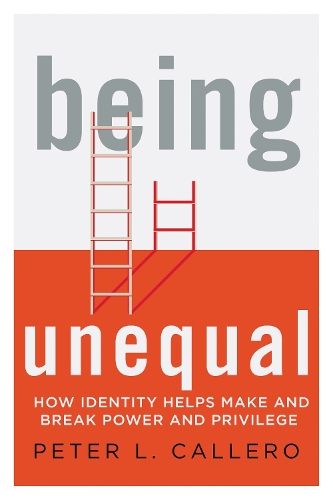
Being Unequal: How Identity Helps Make and Break Power and Privilege
(Paperback)
Available Formats
Publishing Details
Being Unequal: How Identity Helps Make and Break Power and Privilege
By (Author) Peter L. Callero
Bloomsbury Publishing PLC
Rowman & Littlefield Publishers
25th July 2017
United States
Classifications
Tertiary Education
Non Fiction
Sociology
Social, group or collective psychology
305.512
Physical Properties
Paperback
198
Width 151mm, Height 229mm, Spine 15mm
308g
Description
We may think we control our own destinies, but who we are, how we think, what we feel, and how we act are shaped by multiple, intersecting identities that have different amounts of power and value in our society. Being Unequal explores how identity categories associated with race, class, gender, and sexuality help shape inequality. This concise and accessible book asks: How is identity experienced How does identity help reproduce inequality How does identity help resist inequality What is the relationship between micro and macro inequalityin other words, how do our personal experiences shape larger social forces
Being Unequal argues that identities matter because they are a critical part of a complex social process in which everyday interactions contribute to larger systems of structural inequality. By recognizing the links between identity and inequality, Being Unequal also highlights the power of collective action to resist and oppose domination and exploitation. Filled with engaging real-world examples ranging from the social construction of momentary high school cliques to the emergence of momentous social movements, Being Unequal is a powerful introduction to social identities and the ways they shape our world.
Reviews
Awareness of the profound structural inequalities that haunt the United States and the globe could not be more critical. But structures are abstract, and it can be all too easy for people, both in advantaged and even in marginalized positions, to be blind to the inequalities that social structures create and maintain. In this volume, Peter Callero brings these inequalities to life by telling the stories of individual people, showing how inequalities are organized through and experienced in human identities. As Callero clearly demonstrates, identities play a critical role in both making and breaking societal inequalities. By showing the power of resistance, Callero leaves his readers with hope for a more just world. -- Judith A. Howard, University of Washington
Peter Callero covers a large amount of conceptual ground in a concise and engaging manner. The writing style is exceptionally clear, and the concepts and examples are captivating. Being Unequal is a teaching tool that successfully provides a textbook summary of existing research, but scholars will also read and cite this book. -- Scott R. Harris, Saint Louis University
Linking everything from Jay-Zs misogynistic lyrics to Emory Universitys denial of slave labor, Peter Callero once again shows us why identities matter and how they influence social outcomes, and why he is one of the key social psychologists to read on this topic. -- Rashawn Ray, University of Maryland
Author Bio
Peter L. Callero is professor of sociology at Western Oregon University. He is the author or co-author of several books, including The Myth of Individualism: How Social Forces Shape Our Lives.
